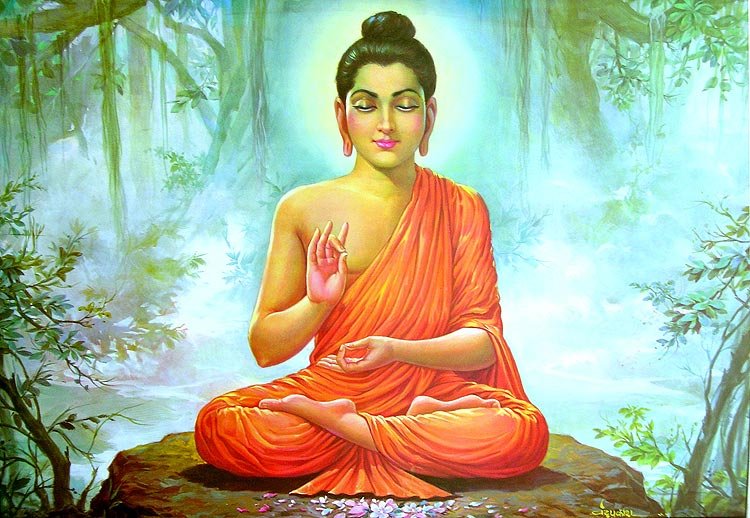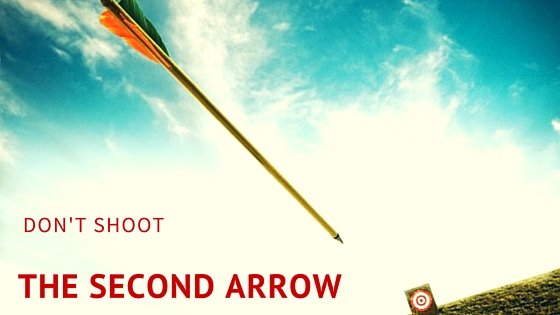This post is simply a summary of (aspects of) Steve Hagen's excellent 'Buddhism Plain and Simple'

This book aims to present The Buddha's teaching in an accessible and uncluttered way. To my mind it succeeds, and here's my summary.
Introduction (pp1-5)
As the millennium draws to a close we have lost faith with our storybook versions of the world. The advances of science mean we see the universe as vast, beyond comprehension and perhaps meaningless. We tend to cope with this in two ways (two wretched extremes) - we either blind ourselves to our predicament by escaping via such things as drugs/ careers/ faith, in which case we tend to think 'if only I had enough of that particular thing then I'd be happy', or we face the woeful prospect of a meaningless (anomic) existence, in which case nothing really matters.
There is a way to move beyond this ignorance, pessimism and confusion, and to experience rather than comprehend reality as a whole. This experience is direct perception itself, seeing before the signs appear, before ideas sprout, before falling into thought. This experience is called Enlightenment and it is nothing more or less than seeing things as they are rather than as we wish or believe them to be.
The Journey into Now (pp 6-11)
2500 years ago a man named Gautama awakened from the crippling ignorance that kept him from knowing what was actually going on and became known as the Buddha, and when asked to sum up his teachings in a single word the Buddha said 'awareness' - not of anything in particular, just awareness of what is going on.

This book leaves behind the cultural trappings that have enveloped Buddhist teachings in the last 2500 years and returns to the Buddha's thought plain and simple.
Hagan now spends two pages outlining Gautama's personal journey from prince to ascetic to his two month vigil which lead to his awakening into Enlightenment. This story provides a lesson in some of the core principles Buddhism:
Ultimately, The Buddha realised Enlightenment through his own efforts – and thus it is down to each individual to 'walk the path'. Do not put blind faith in other people's teachings, the point is to see (know) for yourself that something is wholesome or unwholesome.
Buddhism is the process of an open spirit of enquiry. It is about examining every aspect of life carefully, it is about seeing. It is about not being afraid to examine anything, (including the Buddha's own teachings and our own agendas). We cannot approach Buddhism or begin any real enquiry into truth with any assumptions or belief whatsoever.
The notion of Awakening (Enlightenment) is just that, it isn't anything other than being awake, pure awareness. The Buddha Dharma has no creation story, no beginning. It does not try to or ask you to explain anything, truth is simply to be seen, that is all. The notion of Awakening (Enlightenment) is just that, it isn't anything other than awareness. -
Hagan now outlines the well-known raft analogy – In this quest for liberation, The Buddha's teachings are but a raft - useful for getting you across to the other shore, but afterwards useless. The trouble is we tend to fall in love with the raft and we must remember that even The Buddha's words are not truth, they merely help us get to the other side, and even these must be abandoned in the end. -
Finally, Hagan illustrates the Buddhist journey through an analogy which asks us to imagine that we have just been shot by an arrow: Being shot with the arrow is the human condition (suffering), and Buddhism involves us in attending to the arrow, the cause of our suffering, which is necessarily painful, but the only way to eliminate our suffering. In contrast, says Hagan, what we actually do in life, is to leave the arrow in, and instead of confronting the arrow directly, we skirt around the issue by asking silly questions about who shot it, and from what kind of bow. (I'm guessing this is a critique of mainly intellectualism, but also, of the human tendency to look for causes to our problems outside of our selves.)

Shortly after his awakening, The Buddha was asked by a Brahman named Dona, who had noticed the Buddha's unsurpassed tranquility, whether he was a God, to which The Buddha replied 'no, I am awake'.
I like it! Buddhism explained in a way anyone could understand :)
The Monk Who Sold His Ferrari? I just have a feeling you did for some reason.
Please check my new post, I think you will like it!
@paps
Congratulations @revisesociology! You have completed some achievement on Steemit and have been rewarded with new badge(s) :
Click on any badge to view your own Board of Honor on SteemitBoard.
For more information about SteemitBoard, click here
If you no longer want to receive notifications, reply to this comment with the word
STOPGreat summary! As a buddhist myself and trying to understanding the true essence of it in my daily life, Buddhism for me is simply about "mindfulness" with kindness.